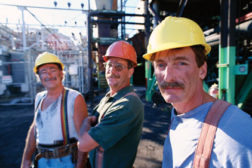Psychology in the Workplace
Lifestyle intervention improves high schoolers’ health
Research shows promise for teens at risk of becoming obese
September 20, 2013
Americans stay digitally connected to work on weekends and vacations-
-and most say they like it
September 13, 2013
Never miss the latest news and trends driving the safety industry
eNewsletter | Website | eMagazine
JOIN TODAYCopyright ©2024. All Rights Reserved BNP Media.
Design, CMS, Hosting & Web Development :: ePublishing










